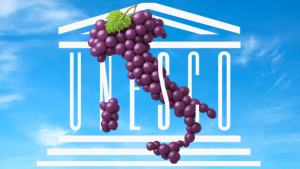"VAT payments with the EU OSS, regulations for sales of excise goods to EU buyers (B2C), and the integration of the DAC7 Directive for cross-checking VAT between Member States."
Significant changes have affected the sales of wine and other excise goods to EU end consumers (B2C) following the introduction of the One-Stop-Shop (OSS), which regulates the payment of intra-community VAT as of July 1, 2021. Additionally, the recent implementation of the DAC7 Directive, effective from January 2024, further impacts these transactions.
As many mistakenly believe, distance sales are not limited to transactions made through electronic platforms such as virtual marketplaces or portals, but also include orders placed via email, phone, or other means of communication, which constitute a transaction by the seller, who can be a producer or merchant. The seller’s direct or indirect involvement in the shipment or transport classifies the sale as an intra-community distance sale.
Previously, online sales of excise goods, including wine, to EU end consumers were always subject to VAT in the destination country, regardless of exceeding the threshold, according to Article 34, paragraph 1, letter a) of Directive 112/2006/EC.
Since July 1, 2021, distance sales of excise goods, including wines, to EU end consumers (B2C) follow the rules established by Articles 74-quinquies and 74-sexies of Presidential Decree 633/1972. The main changes include:
- There are no longer annual thresholds for tax liability in the Member State of destination for goods; instead, an annual threshold of €10,000 is introduced for the total volume of distance sales, applied to each individual destination country.
- Introduction of the EU One Stop Shop (OSS) as an evolution of the MOSS, applicable when the annual threshold of €10,000 is exceeded, with unified quarterly declarations and payments for all intra-EU sales to end consumers.
- Elimination of the obligation to issue invoices for intra-EU distance sales.
Clear regulatory framework: excise duties as the VAT taxable base, with the One Stop Shop (OSS) and DAC7 aligned

Note that these changes do not affect the excise regime for wine sales, and the rules governing it remain unchanged, as excise duties contribute to the VAT taxable base.
Excise goods that have already been consumed in one Member State and are purchased by a person established in another Member State are subject to excise duties in the destination Member State, where the shipment or transport arrives.
These measures are in addition to the implementation of the DAC7 Directive, as discussed in the previous article, with the provision dated November 20, 2023, from the Italian Revenue Agency. This directive mandates cross-checking of VAT payments across different Member States, where the excise duties on alcohol form the VAT taxable base.
The Revenue Agency on one side, and the Customs and Monopolies Agency on the other, clarify an increasingly stringent regulatory framework that leaves no room for error.



